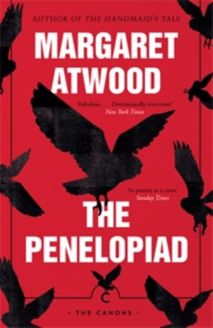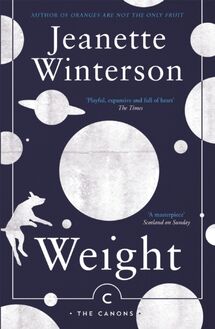Where Three Roads Meet , livre ebook
75
pages
English
Ebooks
2009
Vous pourrez modifier la taille du texte de cet ouvrage
Obtenez un accès à la bibliothèque pour le consulter en ligne En savoir plus
Découvre YouScribe en t'inscrivant gratuitement
Découvre YouScribe en t'inscrivant gratuitement
75
pages
English
Ebooks
2009
Vous pourrez modifier la taille du texte de cet ouvrage
Obtenez un accès à la bibliothèque pour le consulter en ligne En savoir plus
Publié par
Date de parution
04 juin 2009
Nombre de lectures
1
EAN13
9781847676528
Langue
English
Publié par
Date de parution
04 juin 2009
Nombre de lectures
1
EAN13
9781847676528
Langue
English
Myths are universal and timeless stories that reflect and shape our lives – they explore our desires, our fears, our longings and provide narratives that remind us what it means to be human. The Myths series brings together some of the world’s finest writers, each of whom has retold a myth in a contemporary and memorable way. Authors in the series include: Chinua Achebe, Alai, Karen Armstrong, Margaret Atwood, AS Byatt, Michel Faber, David Grossman, Milton Hatoum, Natsuo Kirino, Alexander McCall Smith, Tomás Eloy Martínez, Klas Östergren, Victor Pelevin, Ali Smith, Donna Tartt, Su Tong, Dubravka Ugresic, Salley Vickers and Jeanette Winterson.
WHERE THREE ROADS MEET
Salley Vickers
To my dear friend, Petrie Harbouri, and in memory of Spyros Harbouris, who first took me to Delphi.
"An unapparent connexion is stronger than an apparent one." Heraclitus
Oedipus, the son of Laius, King of Thebes, and Jocasta, is exposed as an infant because an oracle had informed the father that his as yet unborn son would be his murderer. He is rescued and grows up as the son of a king at a foreign court until, unsure of his origins, he consults the oracle himself and is advised to avoid going home since he is destined to become the murderer of his father and husband to his mother. On the way from what he thinks of as home, he encounters King Laius and kills him in a fight that erupts swiftly. He then approaches Thebes, where he solves the riddle posed by the Sphinx barring the way; the grateful Thebans express their thanks by making him king and giving him Jocasta’s hand in marriage. He rules for many years in peace and honour and, together with the woman he does not know to be his mother, has two sons and two daughters – until a plague breaks out, occasioning a fresh consultation of the oracle, this time by the Thebans…
* * *
The plot of the play consists quite simply of the gradually intensifying and elaborately delayed exposure (not unlike the task of psychoanalysis) of the fact that Oedipus is himself the murderer of Laius as well as the son of the murdered man and of Jocasta. Shattered by his unwittingly performed atrocity, Oedipus blinds himself and abandons his homeland. The words of the oracle are fulfilled…
* * *
If King Oedipus is no less unsettling for modern man than it was for contemporary Greeks, the answer can presumably only be that the effect of the Greek tragedy does not rest on the contrast between fate and human will, but must be sought in the special nature of the material used to demonstrate that contrast…The only reason why his fate grips us is because it might also have been our own, because prior to our birth the oracle uttered the same curse over us as over him. It was given to us all, possibly, to direct our first sexual stirring at our mother, our first hatred and violent wish at our father; our dreams persuade us of that. King Oedipus, who struck his father Laius dead and married his mother Jocasta, is simply the wish-fulfilment of our childhood years…As the playwright, in the course of his investigation, brings to light Oedipus’s guilt, he forces us to acknowledge our inner life – in which the same impulses, albeit suppressed, are still present…
* * *
Like Oedipus, we live in ignorance of the wishes so offensive to morality with which nature has burdened us and following the unveiling of which we should no doubt all rather look away from the scenes of our childhood.
Sigmund Freud, Interpreting Dreams
An Old Story
An Old Story I know you thought I knew it not
But though that age is half forgot
I’m mistress in my house still,
And all my art and all my skill
I used to bring him close to me,
Afraid of him should he choose free,
Afraid my face would not move
His years’ desire, and thus prove
A bane to me. This my subtle scheme.
You know the plot, here is the theme:
I, Jocasta, knowingly said
"Bring my son to my bed".
Spyros Harbouris
"The Lord whose oracle is at Delphi neither reveals nor conceals, but gives a sign."
Heraclitus
Contents
Title Page Dedication Where Three Roads Meet Chapter One Chapter Two Chapter Three Chapter Four Chapter Five Chapter Six Chapter Seven Chapter Eight Chapter Nine Chapter Ten Chapter Eleven Chapter Twelve Chapter Thirteen Chapter Fourteen Chapter Fifteen Chapter Sixteen Chapter Seventeen Chapter Eighteen Chapter Nineteen Chapter Twenty Author’s Note About the Author Also By Salley Vickers Copyright
WHERE THREE ROADS MEET
Early in 1923, in his sixty-seventh year, Sigmund Freud, originator of the theory and practice of psycho analysis, and the radical and provocative Oedipus complex, discovered a growth in his mouth. He consulted Marcus Hajek, a rhinologist acquaintance in Vienna, who indicated that the growth was almost certainly the result of years of heavy smoking. Freud was abstemious with alcohol, mistrusting anything likely to cloud his wits, but he found nicotine a powerful stimulus to thought and it had become one of his chief sources of daily pleasure. Perhaps aware of the implications for his most treasured habit, or perhaps because, since a suspected coronary thrombosis at the age of thirty, Freud was perpetually on the lookout for signs of his impending death, he did nothing for several weeks after Hajek’s diagnosis. Then, one morning, without informing either friends or family, he turned up unannounced at the outpatient clinic of the hospital where Hajek worked and asked that the growth be removed.
Later in the morning his wife, Martha, and their youngest daughter, Anna, were alarmed to receive a call from the clinic requesting that they bring over Freud’s night things. They were even more unnerved when they arrived to find Freud sitting unattended in a chair in the outpatients’ department, his usually immaculate shirt and jacket stained with blood. The loss of blood from the operation, conducted under local anaesthetic, had been so profuse that it was thought prudent Freud stay overnight at the clinic. As there were no private rooms and there was a shortage of overnight beds, a temporary ward was contrived by rigging up a curtain across a small room already occupied by another patient, a dwarf receiving treatment for cretinism.
That afternoon, the wound from the operation began to haemorrhage. Freud was unable to attract anyone’s attention as the bell by his bed was defunct and the operation had left him in no condition to shout. In the end it was the cretinous dwarf who hurried for help and very possibly saved his roommate’s life. Freud’s daughter Anna, who thereafter faithfully provided her father with any necessary nursing, remained with him through the following night, during which, she reported, her father was semi-conscious from loss of blood and sedative medication.
When examined, the growth proved to be cancerous. This news, however, was kept from the patient by Hajek and by another doctor friend and future psychoanalyst, Felix Deutsch, whom Freud had also consulted. An intensive and enervating radium therapy was begun which left him in debilitating pain for many weeks.
At this same time his favourite grandchild, Heinz – whom Freud regarded as exceptional and with whom he had formed a close bond – had his tonsils removed. In the aftermath of their related operations, four-year-old Heinz and his grandfather compared notes about their progress. But the boy was delicate and four months later he died of TB. Freud loved Heinz very deeply and the news of his untimely death was the only occasion on which he was known to have shed tears. It precipitated his first bout of real depression. He proclaimed, "Everything has lost its meaning for me" and the loss of Heinz – which was to be compounded by the later loss of Heinz’s mother, his beloved daughter Sophie – affected him more seriously than his own mortal illness. After this, Freud declared, he could never become emotionally attached to any new person again; and about this time he turned to dogs, especially the three chows he came to own, as objects of fresh affection.
Shortly after this series of traumas and discouragements, Freud took his daughter Anna on a visit to Rome, and during the journey his mouth haemorrhaged again. Deutsch had already consulted Professor Hans Pichler, a highly regarded oral surgeon, over Freud’s case. Pichler, when he examined Freud on his return, decided that further and more radical surgery to the palate and jaw was called for. The true state of Freud’s health was still kept from him, perhaps because of his notorious preoccupation with his own death; when eventually this precautionary censoring was revealed to him, predictably, Freud was furious. For this reason, in 1929 he engaged Dr Max Schur to be his personal physician on the absolute understanding that no medical detail, however unpropitious and dismaying, was to be kept from him and that Schur would help Freud to "die decently" should he come to find the effects of the cancer more than he was equal to.
The second operation was a major undertaking. It was conducted in two stages during which Pichler slit open Freud’s cheek from mouth to right ear and removed the best part of the upper palate and a large section of the jawbone. Here began sixteen years of treatments and operations, thirty-three all told, attempting to contain the cancer. This was not helped by Freud’s unwillingness to forgo his customary indulgence in cigars. Apart from a brief period of abstinence which he found almost unendurable – the more so as he was convinced that a deficiency of nicotine impaired his ability to think – for most of the rest of his life he continued to smoke twenty cigars a day. The treatment for the cancer proved as invasive and undermining as the illness. With a major part of the palate missing, the nasal cavity was open to the mouth, so an oral prosthesis which Freud nic









